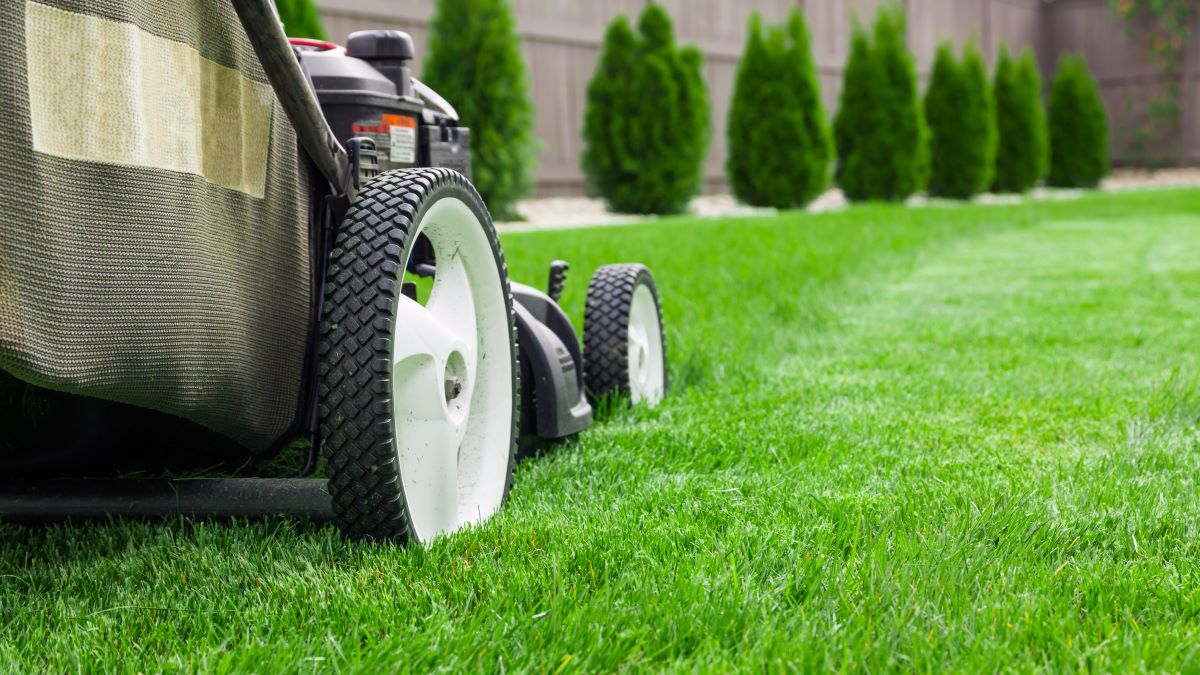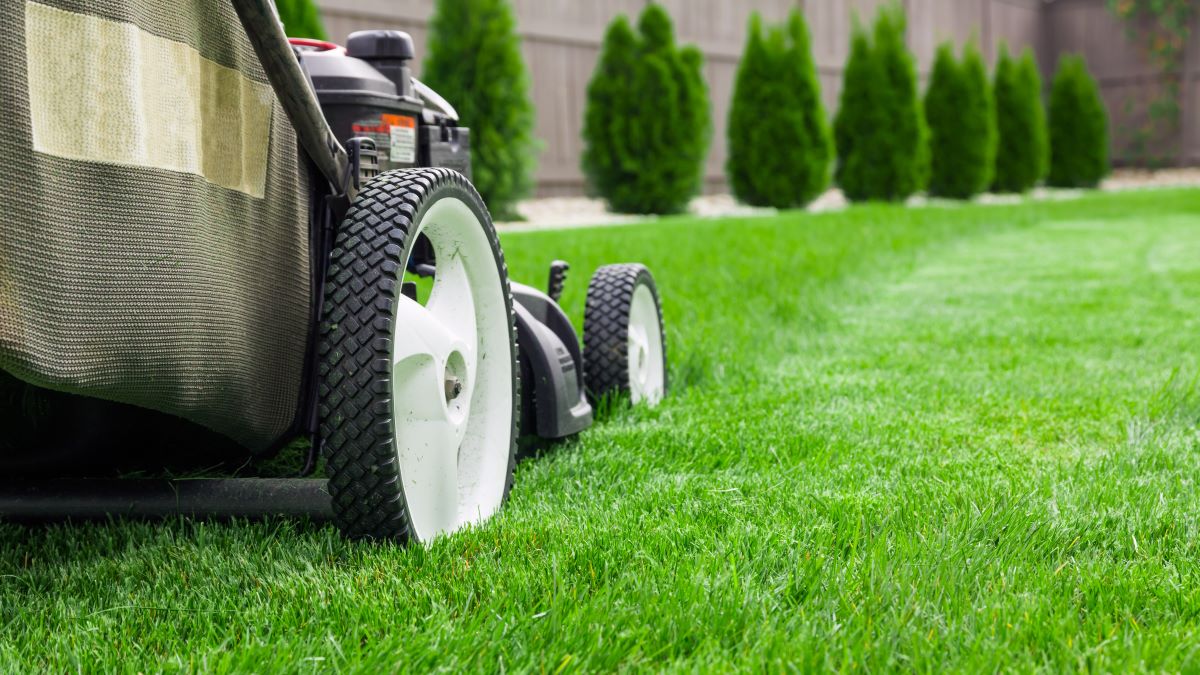
Key Takeaways:
- Lawn care insurance is crucial to protect small residential lawn care businesses and large commercial lawn/landscape businesses alike. Comprehensive insurance coverage protects your business and property, customers’ property, and employees in the event of an accident or problem.
- Your customized coverage should include policies like general liability insurance, commercial vehicle insurance, workers’ compensation insurance, and much more. Learn about each type of coverage and why it’s important.
- Learn about the importance of establishing a strong relationship with a dedicated insurance agent who can support your business goals and advise you on mitigating risk for your lawn care business.
Whether you have a small lawn care business using yard equipment and mowers to service a neighborhood or residential area or a large corporation focusing on servicing multiple contracts and commercial facilities with a fleet of trucks and commercial-grade equipment, you are going to find that there is risk involved in every job.
Each job has the potential to bring financial and/or personal risk that may involve employees, equipment, vehicles, and your customers’ property. The right type of lawn care insurance will protect you and your customers and shield your equipment and property from potential liability issues that arise from accidents, mistakes, and carelessness. Additionally, solid insurance coverage provides business continuity and assurances to your customers that you run a trustworthy operation.
In this article, we introduce the types of coverage lawn care businesses need and the costs to acquire the best protection.
Why Lawn Care Businesses Need Specialized Insurance
One of the first questions new business owners ask is: “Do you need lawn care insurance?”
The answer is absolutely! While all businesses are at some risk, industry-specific risks in the lawn care and landscape field include exaggerated risks that a standard liability policy may not cover:
- Accidents that happen when operating power tools, like mowers, leaf blowers, aerators, chainsaws, tillers, and more
- Transporting heavy equipment
- Exposure to weather
- Employee injury
- Property damage or theft, either yours or the customers
- Accidents that involve your lawn care vehicle whether driven by you or by an employee
We also can’t forget that we live in a time of increasing litigation trends and lawsuits (justified and frivolous), as well as the rising cost of uninsured claims. Lawn care insurance helps to protect you from the unforeseen and provides business continuity when it’s needed most.
In fact, lawn care insurance will often be a contract requirement for large commercial customers (and savvy residential customers) where a Certificate of Insurance is required to start work. It also helps to establish trust between you, the business owner, and the customer. They know that you value your business’s long-term success and will provide solid lawn care services.
Core Insurance Policies Every Lawn Care Business Should Consider
There are a variety of insurance policies available for businesses today. You can select the policies that are right for your business and build a custom overall insurance coverage plan that works for you. Be sure to find a trusted insurance agent that understands the commercial side of the insurance industry and can provide you with answers to your questions.
Let’s take a look at the type of insurance policies that you may need:
General Liability Insurance
Think of General Liability Insurance as the real workhorse for lawn care businesses. General Liability Insurance covers injuries to third parties and property damage that may be caused by your business operations. Lawn care business risks could include:
- Accidental property damage like damaging a client’s sprinkler system while edging or dropping equipment that causes unexpected damage to outdoor furniture or decking.
- Errors in workmanship like removing or damaging the wrong plants or misreading a landscaping plan leading to damage.
- Injuries from equipment or chemicals which can include a customer tripping over equipment or tools, or someone being harmed or burned by the chemicals used for weed control or fertilization.
- Environmental damage caused by chemical spills that harm the environment or destroy grass or plants.
Note that subcontractors and independent contractors may need to carry their own lawn care insurance and may not be covered under your policies.
Commercial Auto Insurance
Since you will need to transport crew and equipment to and from work sites, you will need to have commercial auto insurance to cover work trucks, trailers, and vans. This will include your personal vehicles if used for business purposes.
Most lawn care business owners have a truck that they use for business as well as personal use. This vehicle should be insured for commercial use (beyond commuting) since commercial policies usually provide higher liability limits and more comprehensive coverage than personal policies.
Be sure to seek advice from a knowledgeable insurance agent or attorney on how best to hold and insure the asset which will have implications for business finances as well as potential tax issues.
Like personal auto insurance, commercial auto insurance has liability, collision, and comprehensive coverage available. Additionally, you may supplement your commercial policy with additional coverages like uninsured/underinsured motorist coverage, medical payments coverage, rental reimbursement, and more. A knowledgeable insurance agent can help you choose the right options and ensure you are meeting any legal requirements defined by the state(s) where you operate.
Basic insurance will cover the following:
- Liability Coverage – Covers the costs associated with bodily injury and property damage involving one of your vehicles and is mandatory in most states.
- Collision Coverage – Helps pay for repairs to your vehicles if they are involved in an accident regardless of who is at fault.
- Comprehensive Coverage – Covers damage to your vehicles for damage caused by events other than collisions, e.g., vandalism, theft, weather-related damage, fire, etc.
Workers’ Compensation Insurance
For true work-related injuries or illnesses, workers’ compensation insurance will protect your employees if they are injured on the job or contract an illness through work. Workers’ compensation insurance is required in most states and is key in the lawn care industry where employees’ jobs are physical in nature and put them at risk from cuts, falls, and equipment-type injuries.
This type of insurance will protect your employees and your business by covering medical expenses, legal costs, lost wages, and other expenses that occur with workplace injuries or illnesses. This can include things like emergency room or urgent care visits, doctor’s appointments, physical and occupational therapies, surgeries, durable medical equipment, and more.
If an employee has lost time due to an accident or injury, workers’ compensation insurance will cover missed wages (usually at about two-thirds of the total) and if the employee experiences a disability, full or partial, or permanent impairment, the employee will receive disability benefits as defined by the state requirements.
While workers’ compensation insurance is not a replacement for health insurance, it does provide protection for employees by providing needed care in the event of an injury and illness. It also protects the employer by mitigating risk and preventing employees from bringing protracted legal actions against the employer for negligence.
Inland Marine Insurance or Equipment Insurance
Referred to as Inland Marine Insurance, this type of insurance covers property or equipment that is mobile or is moved from place to place. This type of insurance provides protection equipment against damage, theft, vandalism, or accidents wherever the insured property is located (within the constraints of the policy or territory).
While this does not include vehicles, it covers:
- Lawn care equipment, tools, hand tools, and materials/supplies
- Large equipment, such as backhoes, excavators, and tractors
- Chemicals and solvents used in lawn care
- Property temporarily stored at another location such as a customer’s site or a storage facility.
Professional Liability or Errors & Omissions
Errors & Omissions, or E&O, coverage protects you if a client were to allege financial harm based on your professional advice or services, or failure to deliver services as promised. It covers the costs of legal defenses, settlements, and judgments if needed.
It differs from general liability insurance by covering professional negligence claims, where general liability covers bodily injury or property damage.
How Much Does Lawn Care Business Insurance Cost?
Numerous factors come into play when discussing policy premium costs for business insurance, including the types of coverage you select, your business size, number of employees, and annual revenue, your geographic location, the coverage limits and deductibles, and your claims history.
A good reason to establish a relationship with an experienced and knowledgeable insurance agent is to establish cost-saving strategies and receive all pertinent discounts and bundling benefits. It’s also important to perform an annual policy review where you sit down with your trusted agent to examine business growth, changes in circumstances or risk exposure, and possible savings available.
Another way to mitigate costs is to adopt proven safety protocols and do quarterly and annual audits to ensure compliance. Your agent will know which companies reward businesses that have documented safety programs.
When Insurance is Important — Case Study Examples
Let’s take a look at three examples where insurance coverage provides the protection your company wants:
- Your crew leaves a trailer full of expensive mowers and landscaping equipment at a job site planning to return the next day to complete a project. The next day, they return to find the trailer has been stolen with all of the expense equipment inside. Inland Marine Insurance will cover the equipment and tools, as well as the trailer.
- While your most experienced crew member is mowing, he accidentally damages the customer’s irrigation system. Your General Liability policy will kick in to cover the damages and save the relationship with your customer.
- You are driving to a job site and accidentally rear-end a vehicle. Your full coverage Commercial Auto Insurance policy will cover the damage to your vehicle and the person’s car you hit.
How to Get Lawn Care Insurance for Your Business
So, you understand the importance of lawn care insurance for your business, but how do you get started?
First, assess your overall risks. Look at the size of your business, number of employees, annual revenue, and financial investment. This will help you determine how extensive your insurance portfolio should be and provide a blueprint moving forward. This assessment can also be useful in subsequent years as you continue to revise and update your insurance portfolio.
Gather the necessary valuation information on all of your assets, including your vehicles, equipment, supply inventory, etc. This will help you when choosing coverage amounts to ensure you aren’t over or under insured.
Shop for quotes. Choose a reputable company, like einsurance.com, to provide you with the choices and quotes you need when selecting lawn care business insurance. By sharing some basic information, you can receive information/referrals to several national insurance companies and insurance agencies where you can compare options for an easy decision. Interview several and select the one that makes the most sense for you and your business.
Final Thoughts
Your lawn care business is key to your success and deserves the time it takes to proactively plan for the best coverage, do the due diligence required to fully understand what’s needed, and position coverage that protects your reputation and your revenue.
We encourage you to take the time to adequately compare plans, review quotes, and consult with commercial insurance experts to ensure you are acquiring comprehensive insurance coverage that will protect your business and employees into the future.
Contact einsurance.com where you can find the right team to help you minimize your financial risk exposure and give you peace of mind.

